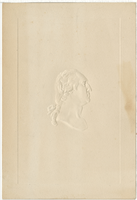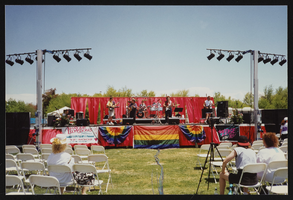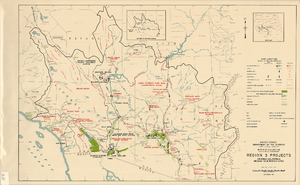Search the Special Collections and Archives Portal
Search Results
Kenneth W. Fong oral history interview
Identifier
Abstract
Oral history interview with Kenneth W. Fong conducted by Lois Goodall on February 22, 2014 for the West Charleston Neighborhoods--an Oral History Project of Ward 1. Fong discusses growing up in Las Vegas, Nevada and being the son of two successful and philanthropic community members, Wing and Lilly Fong. Fong also discusses his father starting a grocery store and later in 1955, Fong’s Garden. He then discusses real estate development, Nevada State Bank development, as well as contributing to the University of Nevada, Las Vegas and the Chinatown evolution.
Archival Collection
Sidney Lowe oral history interview
Identifier
Abstract
Oral history interview with Sidney Lowe conducted by Claytee D. White on January 22, 2013 for the Boyer Early Las Vegas Oral History Project. Lowe begins the interview by discussing her upbringing in Alabama and South Carolina and her experiences with racial segregation and discrimination. She continues, describing places she has lived, her relationship with the father of her children, and moving to Las Vegas, Nevada in 1982. Lowe talks about life in Las Vegas during the 1980s, obtaining a position in the James R. Dickinson Library at the University of Nevada, Las Vegas (UNLV) as a library assistant, and her education. Lowe concludes by discussing her career working for the UNLV library system and the library's function on campus.
Archival Collection
Site Characterization and Validation: Final Report - Stripa Project 92-22, 1992 April
Level of Description
Archival Collection
Collection Name: Yucca Mountain Site Characterization Office Collection
Box/Folder: Box 82
Archival Component
Michael Montandon oral history interview
Identifier
Abstract
Oral history interview with Michael Montandon conducted by Stefani Evans and Claytee D. White on September 22, 2016 and October 3, 2016 for the Building Las Vegas Oral History Project. Montandon talks of forming relationships with developers, legislators, and other municipalities. He speaks about land use, open space, parks, trails, conservation, the Bureau of Land Management (BLM), and Southern Nevada Public Lands Management Act (SNPLMA). He shares histories and stories of the Becker family's role in developing Clark County, of the Combs family's North Las Vegas, Nevada pig farm and the drama that routinely characterized BLM land auctions, and of why North Las Vegas spent millions of dollars to build its own sewage treatment plant.
Archival Collection
Andy Hafen oral history interview
Identifier
Abstract
Oral history interview with Andy Hafen conducted by Stefani Evans and Claytee D. White on August 22, 2016 for the Building Las Vegas Oral History Project. In this interview, Hafen discusses his upbringing in Henderson, Nevada. He recalls being elected to the City Council in 1987, the expansion of Henderson, and the development of the Water Street District. Hafen then talks about redevelopment of historic areas and the increase in businesses in Henderson. Later, Hafen discusses Lake Las Vegas, the drought and its effect on Lake Mead, and the challenges in developing Lake Las Vegas. Lastly, Hafen explains the how Nevada State College (NSC) has become the necessary link between the College of Southern Nevada (CSN) and the University of Nevada, Las Vegas (UNLV).
Archival Collection
Lydia Berry oral history interview
Identifier
Abstract
Oral history interview with Lydia Berry conducted by Kathy Zeller on February 22, 1979 for the Ralph Roske Oral History Project on Early Las Vegas. During this interview Berry discusses her experiences as a worker for the United States Fish and Wildlife Service. Berry discusses her progression from being a teacher in Kansas City, Missouri to moving to Los Angeles, California and then to Las Vegas, Nevada where she worked at Nellis Air Force Base and then eventually to the Fish and Wildlife Service. She also mentions some of the operations of the Wildlife Service as well as her concerns over animal life and natural resources.
Archival Collection
Gay Or Not, 2005
Level of Description
Archival Collection
Collection Name: Guide to the Canadian Film Centre Worldwide Short Film Festival Submissions
Box/Folder: Box 2005-030
Archival Component

Washington's birthday, Thursday, February 22, 1923, Hotel Vendome
Date
Archival Collection
Description
Text

Band performing on stage at Gay Pride: photographic print
Date
Archival Collection
Description
Image

Map showing U.S. Bureau of Reclamation Region 3 projects in Arizona, California, Nevada, New Mexico and Utah, September 1967
Date
Description
Image
